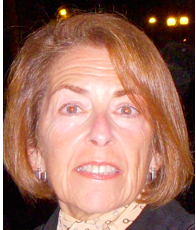Publication and Presentation Announcements by Ruth Lijtmaer (USA)
My name is nobody. I do not know what is my true self: Trauma of refugees in the 21st century.
In: Truth & Dare: Complexities in the Psychosocial Space. Association for the Psychoanalysis of Culture and Society (APCS). Online, October 2020.
In this presentation Lijtmaer examines how migration in the twenty-first century takes place under extreme conditions, more dangerous than in the past. It is filled with loneliness, fear and despair, reminding us of Homer’s verses in which Ulysses says to Polyphemus, “My name is nobody.” The migrations of this new millennium require invisibility in order to survive, without identity, without social integration, and with the consequent risks of those demands for mental health. The extreme mourning that appears when difficulties are so great makes it impossible to resolve the migratory mourning.
Personal Reflections on Living in the Altered State of Covid-19.
(2020). Clio’s Psyche, 27 (1), 97-99.
In this paper Lijtmaer describes her difficulties in adapting to the challenges of using a new frame of working and technology, taking into consideration the changes in people’s working space and family dynamics.
Destruction and Survival in a Dangerous Journey
(2020). Library of Social Sciences Newsletter, August.
Lijtmaer uses the metaphor of the virus invading the body politic as a way to describe how refugees are seen as non-entities without identity, dehumanizing them. After a dangerous journey to escape a country at war or other traumatic conditions, the dream to be safe or find a place in the world that will accept them becomes the nightmare of humiliations and fear.![]()
Music Beyond Sounds and Its Magic in the Clinical Process
(2020). American Journal of Psychoanalysis, 80 (4), 435-457.
Lijtmaer highlights the role of music in psychic change through a clinical case. A patient who was initially distant and cold started to talk about music. An enactment around the analyst’s comment about a famous conductor started an exchange of music “notes” that changed the course of treatment. For the analyst, it brought old memories and musical reveries. For the patient, music allowed him to be in touch with undiscovered parts of himself and losses that had not been mourned. There was a mutual personal transformation and expanding awareness of self and other for both participants.
Culture and Psychoanalysis
In this chapter, Lijtmaer shows how psychoanalysis has until recently focused on training and treating the relatively privileged, making it a minority discipline in relation to the rest of the world. Yet the psychoanalytic community at large is composed of very different individuals, particularly in terms of culture and race. This chapter examines both the resistances to and the necessity for psychoanalytic engagement and inclusion of issues of race and culture in the psychoanalytic discourse and in mental health.
 Ruth Lijtmaer, Ph.D.
Ruth Lijtmaer, Ph.D.
88 West Ridgewood Ave.
Ridgewood, New Jersey 07450
Email Ruth Lijtmaer

